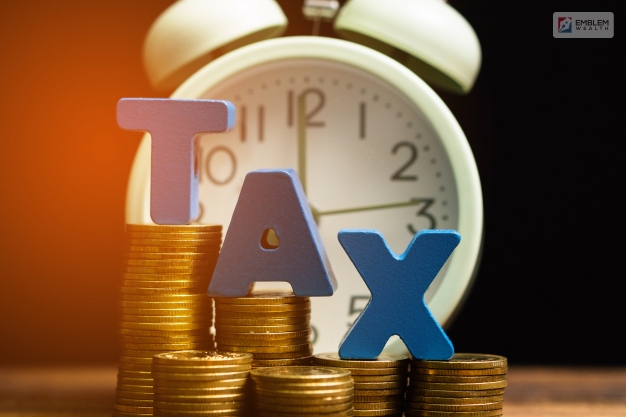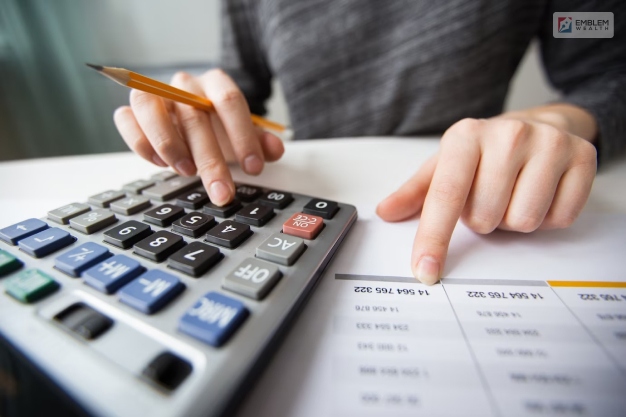Home Office Tax Deduction? How To Qualify For Home Office Tax Deductions?

The concept of the home office came years before the pandemic, as a large number of people already worked from their homes. To make a home office, all you need is a computer, and fast internet, where video conferencing and file sharing are possible. However, not a lot of people know that if certain qualifications are met, one can get a home office tax deduction.
In this article, you will first learn about home office tax deductions in general, as well as some similar tax deductions for other expenses. Then, we shall discuss the eligibility of home office tax deductions regarding who is eligible and what home offices are eligible. Next up, we will share with you the way to calculate these tax deductions. Finally, you will learn how and when to claim the tax deduction.
What Is Home Office Tax Deduction?

It is important to tell you early that home office tax deductions are applicable only to people who are self-employed. It is not applicable to the ones employed in firms and work from home. However, only this eligibility will not do, as you will need to meet various other requirements set out by the Internal Revenue Service (IRS) if you want tax deductions for your home office.
A home office tax deduction is available for eligible self-employed people if they have a dedicated office space in their home that is strictly used for business purposes. This provision was added in 2013 by IRS for tax deductions in home offices to simplify deductions.
According to USChamber.com,
“With the simplified method, taxpayers receive a deduction of $5 per square foot used for home business, with a maximum of 300 square feet. Additionally, with the simplified option, all home-related itemized deductions are claimed in full on Schedule A. However, there is no home depreciation deduction available for the years the simplified option is used.”
Are you an independent contractor, freelancer, or sole proprietor for business? Then you are categorized under self-employed people. Furthermore, to qualify for this tax deduction, you will need to ensure that your home office is solely used for business purposes and not for personal use of any kind. In addition to this, the space must be used on a regular basis, and not just a few times.
Tax Deductions For Other Expenses

There are many purchases for the home office that is also eligible for tax deductions as well. However, these items should be under Schedule C of the legislation. This holds true if you are operating on a full-time basis or if you are doing any kind of freelance work.
Here, USNews.com informs with an example-
“For example, the cost of buying a computer (based on the portion of time you used it for business), printer, modem, office desk and chair, file cabinets and even lighting for Zoom calls you make for your business can be tax deductible as a business expense on Schedule C. If you had a dedicated phone line or internet connection for the business you can deduct those expenses, too.”
You will thus get various deductions on expenses that you make inside your home office.
Are You Eligible For Home Office Tax Deduction? – Let’s Find Out

The “work from home” system has become common nowadays, especially with the coming of the coronavirus pandemic by the end of 2019. However, you will need to understand here that only self-employed individuals are eligible for these tax deductions. These are applicable only to freelancers, independent contractors, gig workers, and similar self-employed people.
After the enactment of the Tax Cuts and Jobs Act in 2017, people who have home offices but still work for an employer in W-2 positions are not eligible for claiming tax deductions anymore. However, you can claim tax deductions if you work for an employer but still has a freelance job. You are still eligible for deductions for the only months you did the job of a freelancer. Despite that, you will need to show some Schedule C income if you want to be eligible for a home office tax deduction.
How To Calculate Tax Deductions For Home Office?

There are two ways through which you can calculate home office tax deduction for your case:
- The Standard Deduction Methods
- The Simplified Method
Standard Deduction Method: Here, you will need to complete the IRS Form 8829. Doing so, you shall be able to calculate the amount that needs to be deducted from your home office expenses. Here, you will need to find out the area of your workplace in square-foot. Then you will need to divide that number by the square-foot area of your home.
Multiply the number by 100, and you will get the percentage of the home office expenses that you need to write off from your tax expenses.
The Simplified Method: Here, you will just need to find the area in square-foot of your home. Later, multiply the number by the rate determined by IRS for your case. You can find the rate on the IRS website. However, you need to ensure that your home office does not exceed more than 300 sq. ft. if you want to deduct taxes using the simplified method.
When Can You Claim Home Office Tax Deduction?

According to USChamber.com,
“If an eligible taxpayer decides to use the simplified deduction method, they can use the number of months they worked from home to prorate the amount they can deduct. They can also choose to deduct a portion of actual expenses for the months they were eligible for the deduction.”
You must know here that even when you only have a few months of your self-employment, you can still claim partial tax deductions for your home office.
Wrapping Up
If a self-employed person and the home office meet certain criteria set by the IRS, they are available for home office tax deductions. However, one must ensure that the home office must have exclusive business purposes only. Furthermore, the total tax-deductible expenses must not exceed the business income for which the deductions are claimed.
Additionally, you must be accurate with your deductions and claims for auditing. Do you have any more information regarding home office tax deductions? Share some info with us in the comments section below.
Continue Reading:


























Leave A Reply